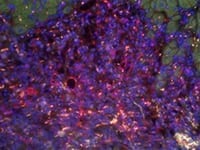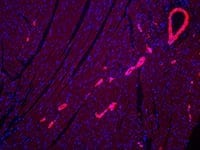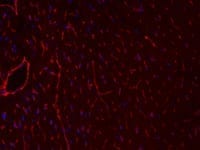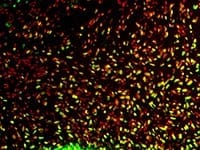Projects – Unknown
Activation of Fibroblast Growth Factor Signaling to Protect the Heart during Acute Myocardial Infarction In Vivo
FGF2 is cardioprotective in isolated heart models and in chronic cardiac ischemia, but little is known as to how to best activate FGF signaling in the context of ischemia-reperfusion injury. We are utilizing both a genetic and pharmacologic approach to test delivery of FGF2 as well as activation of FGF receptors during ischemia-reperfusion injury to provide cardioprotection. This research may aid in the development of FGF2 as a therapeutic for acute myocardial infarction.
In vivo Cell Type Specific Fibroblast Growth Factor Signaling in Cardiac Ischemia-Reperfusion Injury
The cell types which mediate FGF-induced cardioprotection and how signaling in individual cell types alter the remodeling process after acute myocardial infarction remains unknown. We utilize genetic manipulation of FGF receptors in individual cell types within the heart (cardiomyocytes, endothelial cells, fibroblasts) to determine how signaling in these cell types alter outcomes after myocardial infarction including cardiac function, scar formation, hypertrophy, and vascular remodeling. This research may lead to advances in therapeutics target to different cellular processes in the response to injury.
Role of High Sensitivity Troponin Assays in the Evaluation of Patients for Acute Coronary Syndromes
Current strategies to rule out myocardial infarction involve serial biomarker testing because the ability of clinically available assays to detect subtle elevations of circulating cardiac troponin is limited. We are studying the clinical performance of multiple high sensitivity troponin assays to determine which patients presenting to the emergency department with chest pain are at risk for an acute cardiac event. This research has the potential to expedite the evaluation of patients with symptoms suggestive of possible cardiac ischemia.





